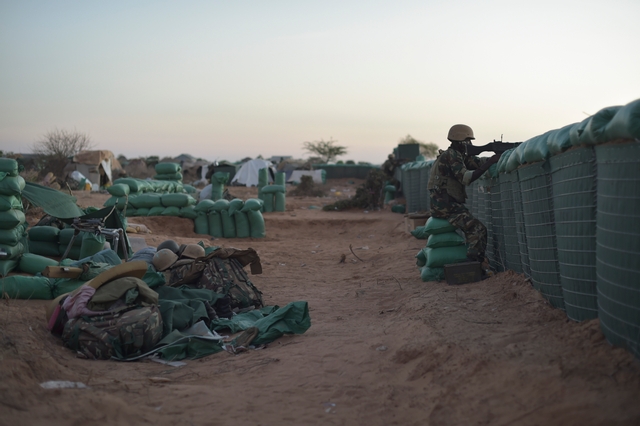Terrorism in West Africa
West African countries are undeniably experiencing an increase in insecurity. A number of countries in the Sahel region, which covers Mali, Burkina Faso, Cameroon and Niger, have experienced terrorist attacks. However, neighbouring countries remain potential targets for attacks as armed actors continue to spread their operations across the Sahel region and extend into other West African countries.
Togolese military and civilian communities have been attacked in recent times. In a recent ambush near the Togo-Burkina border, heavy-armed gunmen suspected of being al-Qaeda affiliates ambushed the Kpekpakandi military post, resulting in 21 casualties, including 8 fatalities. There was another attack in the said Kpendjal prefecture in July 2022.
The Margba village of Tatigou commune was devastated by an IED explosion that killed seven children and injured two others. Until now, the attack on Kpekpankandi’s security post represents the country’s first deadly attack. As a result, fear has been instilled in a country that was previously peaceful and secure. The successful attack poses a threat not only to Burkina Faso, but also to Ghana, which shares a border with Burkina Faso.
On the continent, Ghana is considered to be one of the most peaceful countries. Global Peace Index (GPI) 2022 reports that Ghana is the second most peaceful country in sub-Saharan Africa and the 40th worldwide. As porous borders have long served as a safe haven for Islamist militants, this rating is about to be threatened by a growing insecurity threat.
A group of twenty or more members of Jama’a Nusrat ul-Islam wa al-Muslimin’ (JNIM) allegedly invaded the Burkinabe border town of Benliyenli, about 25 kilometers south of Bansi in Binduri and close to Gentiga in Bawku. Local officials reported that the fighters entered the community amid gunfire around 11 pm. According to reports, some villagers fled to Ghanaian territory after the incident. Armed forces from Ghana were dispatched to monitor the situation in the area.
In the Kassena-Nankana West District of western Burkina Faso, some armed men entered Dakola, another Burkinabe town near Ghana’s border on 11 June 2022, and held several business operators hostage, for nearly an hour. The perpetrators fled after looting millions of CFA and killing two locals.
Terrorist infiltrations that go unchallenged may be caused by one of the following factors:
There have been reports of Ghanaians being recruited into terrorist groups. The heads of Ansarul Islam’s foreign fighting unit, Saifoulah, and the spokesman for the Islamic State in the Greater Sahara (ISGS), Sidi Amar, estimate that 200 Ghanaians are fighting for the terrorist groups. There is a strong likelihood that they are in the ranks of the JNIM or GSIM. It is estimated that there are 80 Ghanaian fighters involved with Ansaru Islam. It has been reported that they are prevalent among the Katiba fighters of Mouslim, Tamimou Katiba, and Saifoulah Katiba.
Most of these Ghanaian recruits are deployed in the Pama and Kompienga regions of the Est region, and more broadly in Barsalogho province of the Center-North and Sahel region of Burkina Faso.
In the Mali Gourma and Burkina Fada regions, the Katiba Serma group is led by Abu Hamza Al-Chinguinti and includes approximately 40 Ghanaians. Approximately 30 Katiba Macina elements operate in Dialloube under the command of Shekou Oumar and Bobala.
A total of six (6) Ghanaians are said to be members of Sheikh Iyad Ag Ghali’s Ansar Dine. There are reportedly two Ghanaians who have assisted with the guarding of hostages during this period. While 40 Ghanaian elements are part of the ISGS/EISG.
Inter-communal violence is another possible factor. In Ghana, almost every community has suffered from some form of communal conflict that has been complex and diverse in nature. Among the causes are religious differences, land resource competition, chieftaincy succession rights, ethnic dominance, and economic and political marginalization.
Government Must Deal with Fundamental Issues
Although it is imperative to monitor these threats, it is even more critical to keep in mind that the current situation of the country can be of benefit to extremist groups.
The prevailing situation provides an opportunity for these groups to exploit the poor condition of some localities and the absence of good governance to recruit wandering youth, radicalise them, and use them to gain access to several parts of the country by exploiting the poor condition and absence of good governance.
Terrorists may infiltrate a country if some communal violence and its causes are not dealt with. Ghana is no exception to this threat, authorities must in all urgency address isolated cases of violence.
Most importantly, the systemic prevalence of unemployment should be resolved in order not to put the idle youth in compromising situations where they become susceptible to radical inclinations.
Photo: AMISOM/Iwaria



